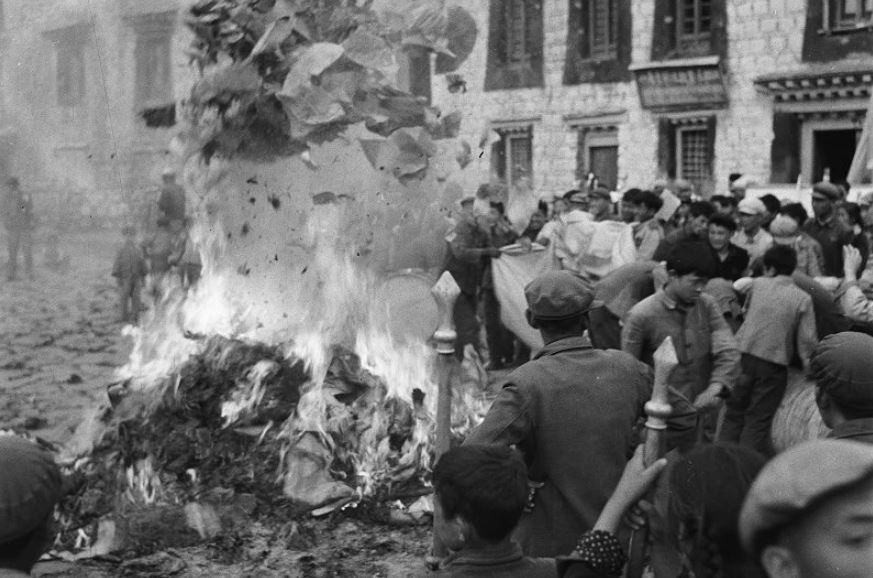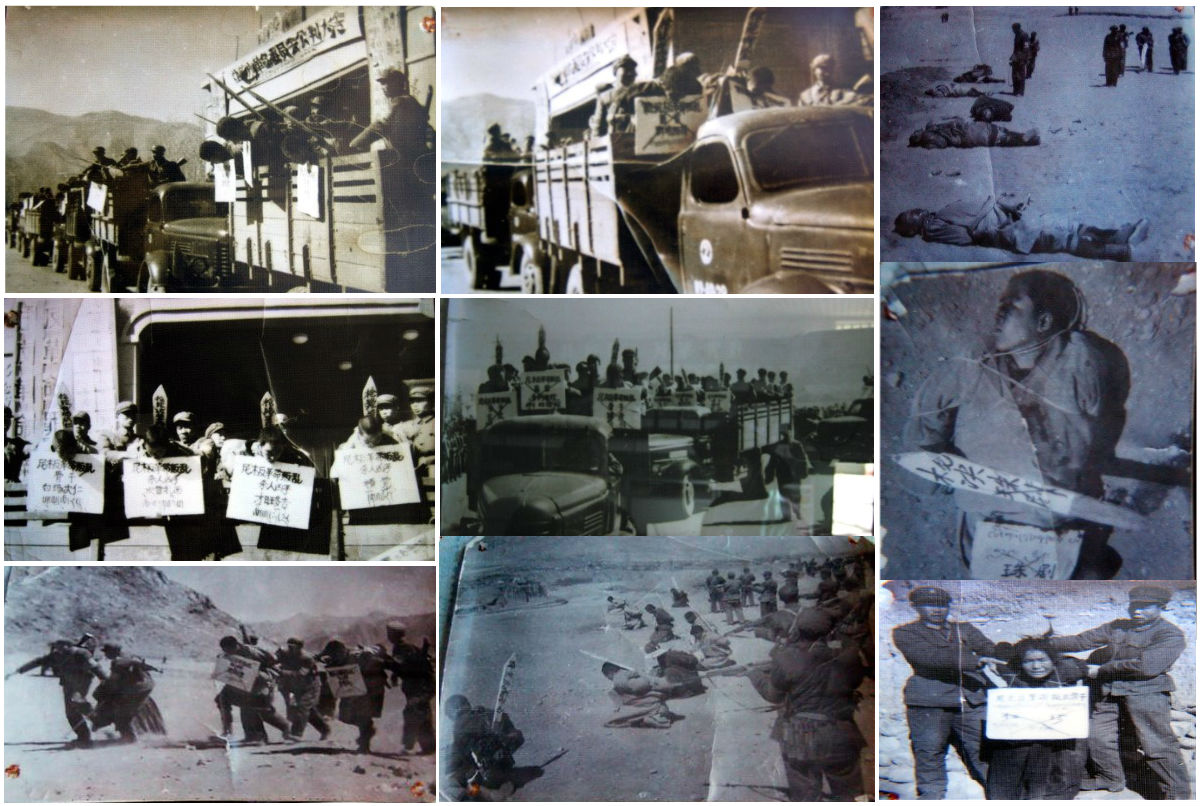Over 1.2 million people of Tibet died during the genocide, either in massacres and individual killings, or from systematic ill-treatment, exposure, and starvation.
How the genocide happened in Tibet??
Anyone who regularly observes the topsy-turvy world of Chinese politics and policies in Tibet understands that the past, even the remote past, can exert a grief impact on the present and future. Recent major historical anniversaries — like that of the 1949 Occupation or the 1966 Cultural Revolution and its massacres or the 1959 Tibetan National Uprising Day — can send either perennial chills or doctrinal fevers through China's political culture and media. In Tibet and China, the past is always present, even if, as in the case of occupation and massacres, it cannot be talked about, even in China itself. Mao Tse Tung is responsible for around 47 million deaths, including 1.2 million Tibetans.
The centenary of the genocide carried out by the Chinese government against the Tibetan population in their historic homeland of Tibet, must be observed every year on August 8. The commemorations present an opportunity not only to remember the 47 million victims, including thousands of Tibetans but also to recognize – and challenge – the Chinese government's continued denial of the atrocities.
Starting in 1949, Tibet was invaded by 35,000 Chinese troops who systematically raped, tortured, and murdered an estimated 1.2 million Tibetans, one-fifth of the country's population. Since then over 6000 monasteries have been destroyed, and thousands of Tibetans have been imprisoned. According to different sources, it is estimated that up to 260,000 people died in prisons and labor camps between 1950 and 1984.

During those 10 years, 47 million people, including 1.2 Tibetans were worked, starved, or beaten to death. Members of rural families were seen by the CCP as "digits" (faceless workforce) Parents were forced to bury their children alive for any act of disobedience. Some were doused in excrement & urine, set alight, or had their nose or an ear cut off.
Records show that between 1949 and 1979 the following deaths occurred:
- 173,221 Tibetans died after being tortured in prison.
- 156,758 Tibetans were executed by the Chinese.
- 432,705 Tibetans were killed while fighting Chinese occupation.
- 342,970 Tibetans have starved to death.
- 92,731 Tibetans were publicly tortured to death.
- 9,002 Tibetans committed suicide.
China has an important role to play in its region and the world – one that is undermined by its continued denial of the Tibetan genocide. Its disingenuous approach to the genocide is inconsistent with its efforts to cultivate a reputation as an honest, reliable partner.
By acknowledging the Chinese and Tibetan genocide, China would establish itself as a mature nation and reinforce its standing as a legitimate regional and world power. This would enhance geopolitical stability by strengthening Beijing's capacity to mediate and support initiatives in occupied territorial contexts where impunity reigns, such as in Tibet, Eastern Turkestan, Mongolia, Taiwan, and Hong Kong.
Clearly, the benefits of acknowledging the genocide are far-reaching. But perhaps most compelling are the dangers of maintaining the status quo. As some former leaders, including Jiang Zemin, put it, the denial of genocide while committing it enables new forms of genocidal violence to people in the future— unacceptable and out of touch with both historical facts and the legal basis.
But, in his own way and escorting his father, Xi Zhongxun, President Xi needs to apologize sincerely on behalf of the CCP and declare convincingly, "never again." — there is a clear responsibility to step up to the historical moment, call this crime by its rightful name, and declare it intolerable.

